Tinnitus Troubles No More: 5 Potent Strategies for Perfect & Better Relief

Overview
Tinnitus is a condition characterized by the perception of noise or ringing in the ears when there is no external sound source. It is not a disease itself but a symptom of an underlying issue, such as hearing loss, exposure to loud noises, or ear injuries. The sound perceived by individuals with tinnitus can vary, ranging from a mild buzzing or humming to a high-pitched ringing sensation. While tinnitus is generally not a serious medical concern, it can be bothersome and impact a person’s quality of life, causing sleep disturbances and difficulty concentrating. Management of tinnitus involves identifying and addressing the root cause, as well as implementing coping strategies to alleviate the impact of the perceived noise.
5 Potent Strategies for Relief
-
Identifying and Managing Underlying Causes: The first step in finding relief from tinnitus is to identify any underlying causes that may be contributing to the condition. This could include addressing hearing loss, managing stress and anxiety, avoiding loud noises, or treating any ear infections or injuries.
-
Sound Therapy: Sound therapy can be an effective strategy for managing tinnitus. This involves using external sounds, such as white noise or nature sounds, to help mask or distract from the perceived ringing in the ears.
-
Cognitive Behavioral Therapy (CBT): CBT is a type of talk therapy that can help individuals reframe their thoughts and reactions to tinnitus. It can be beneficial in reducing the emotional distress and anxiety often associated with the condition.
-
Medications: In some cases, medications may be prescribed to help manage tinnitus. These could include antidepressants or antianxiety medications to address emotional distress, or certain medications that may improve blood flow to the inner ear.
-
Lifestyle Changes: Making positive lifestyle changes can also play a significant role in managing tinnitus. This may involve adopting a healthy diet, engaging in regular exercise, practicing relaxation techniques, and ensuring adequate sleep.
It is important to note that while these strategies can be helpful for many individuals, the effectiveness of each approach may vary from person to person. Consulting with a healthcare professional or audiologist is essential to determine the most appropriate and personalized treatment plan for relieving tinnitus.
Introduction
Tinnitus is a prevalent and often frustrating condition that affects millions of people worldwide. It manifests as the perception of sound in one or both ears or in the head, without any external source. The sound can take various forms, such as ringing, buzzing, hissing, or roaring, and its intensity can range from a mild annoyance to a constant disturbance. While tinnitus is not a disease itself, it can significantly impact an individual’s quality of life.
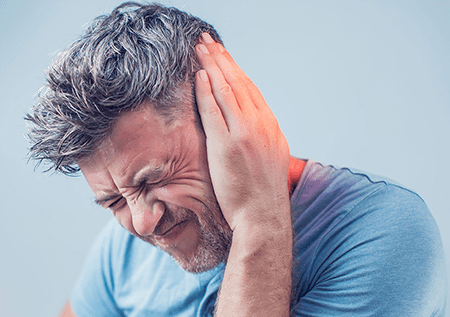
The exact mechanisms behind tinnitus are not fully understood, but it is believed to involve changes in the auditory system or the way the brain processes sound. This condition can arise from various factors, including exposure to loud noises, earwax blockage, age-related hearing loss, certain medications, and underlying health conditions. Understanding the causes, symptoms, and available treatment options for tinnitus is crucial for individuals experiencing this condition and those seeking to support and assist them.
In this article, we will delve into the world of tinnitus, exploring its causes, symptoms, and the range of treatment options available. By gaining a comprehensive understanding of tinnitus, we hope to empower individuals to effectively manage and cope with this often challenging condition.
Top 5 Symptoms of Tinnitus:
1: Tinnitus Symptoms

Tinnitus is a condition characterized by the perception of sound in one or both ears or in the head, without any external source. The symptoms of tinnitus can vary from person to person, but the most common symptom is the presence of a persistent ringing or buzzing sound. This sound can range in intensity from a soft hum to a loud roar and may be constant or come and go intermittently.
In addition to the perceived sound, individuals with tinnitus may experience other symptoms. These can include difficulty concentrating, trouble sleeping, irritability, anxiety, and depression. Tinnitus can have a significant impact on an individual’s quality of life, affecting their ability to focus, relax, and engage in daily activities.
2: Ringing in the Ears
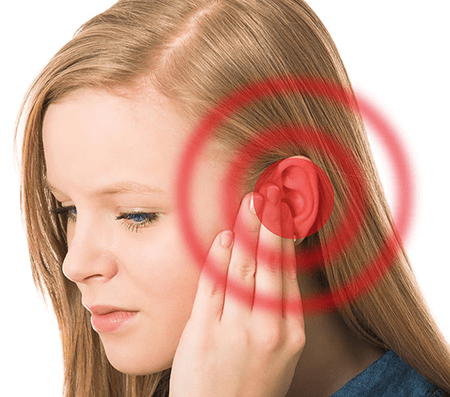
Ringing in the ears, also known as tinnitus, is a prevalent symptom experienced by individuals with this condition. The ringing sound can vary in pitch and intensity and may be perceived in one or both ears. It can be continuous or intermittent, and its presence can be bothersome and distracting.
The exact cause of ringing in the ears is not fully understood, but it is believed to involve changes in the auditory system or the way the brain processes sound. Factors such as exposure to loud noises, age-related hearing loss, earwax buildup, and certain medical conditions can contribute to the development of tinnitus.
Managing ringing in the ears involves addressing the underlying causes, reducing exposure to loud noises, and implementing coping strategies to minimize its impact on daily life. Treatment options can include sound therapy, counseling, medication, and lifestyle adjustments.
3: Ear Fullness
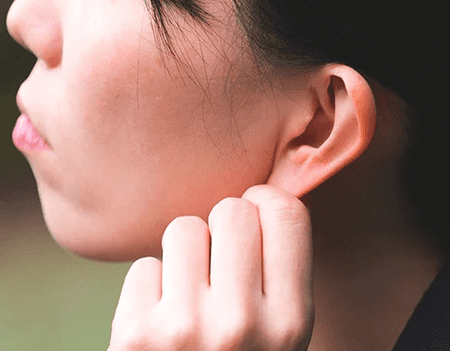
Ear fullness, also known as aural fullness, is a sensation of pressure or blockage in the ears. It is a common symptom experienced by individuals with tinnitus. The feeling of fullness can range from mild to severe and may be accompanied by other symptoms, such as ringing in the ears or muffled hearing.
Ear fullness can occur due to various factors. It may be caused by Eustachian tube dysfunction, which can result from allergies, sinus infections, or changes in air pressure. Other possible causes include middle ear infections, earwax blockage, and certain medical conditions.
To alleviate ear fullness, it is important to address the underlying cause. This may involve treating allergies or sinus infections, using techniques to equalize ear pressure (such as swallowing, yawning, or using a nasal decongestant), or seeking medical intervention for more severe cases.
4: Ear Pain
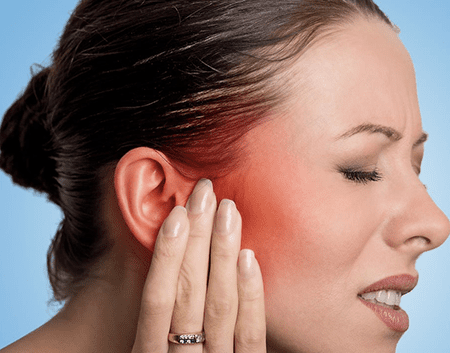
Ear pain can be another symptom associated with tinnitus. The pain may be experienced as a dull ache, sharp stabbing sensation, or a feeling of pressure within the ear. It can occur in one or both ears and may be intermittent or constant.
Ear pain associated with tinnitus can have several causes. It may be due to inflammation or infection in the middle or inner ear, temporomandibular joint (TMJ) disorders, or dental issues. In some cases, the pain may be referred from other nearby structures, such as the jaw or throat.
Managing ear pain involves identifying and treating the underlying cause. This may include antibiotics for infections, pain relievers, anti-inflammatory medications, or interventions for TMJ disorders or dental problems. Consulting with a healthcare professional is essential to determine the appropriate course of action.
5: Dizziness

Dizziness is a symptom that can be experienced by individuals with tinnitus. It is characterized by a sensation of lightheadedness, imbalance, or a spinning motion. Dizziness can be accompanied by feelings of nausea, disorientation, and a loss of balance.
The relationship between tinnitus and dizziness is complex, and both symptoms can have shared underlying causes. Inner ear disorders, such as Ménière’s disease, vestibular migraines, or benign paroxysmal positional vertigo (BPPV), can contribute to the development of both tinnitus and dizziness. Additionally, certain medications, anxiety, and other medical conditions can also cause dizziness.
Treatment for dizziness associated with tinnitus depends on the underlying cause. It may involve vestibular rehabilitation exercises, medications to manage symptoms, lifestyle modifications, and stress reduction techniques.
It’s important to remember that tinnitus symptoms can vary among individuals, and the appropriate management approach may differ based on the specific symptoms experienced. Consulting with a healthcare professional specializing in audiology or otolaryngology (ear, nose, and throat) is crucial for an accurate diagnosis and tailored treatment plan.
Causes of Tinnitus
Tinnitus can have various underlying causes, and understanding them is essential in managing and addressing the condition. Some common causes of tinnitus include:

-
Exposure to loud noises: Prolonged exposure to loud sounds, such as those experienced in concerts, construction sites, or through the use of headphones at high volumes, can damage the delicate structures in the inner ear and lead to tinnitus.
-
Age-related hearing loss: As we age, the sensory cells in the inner ear naturally deteriorate, leading to a gradual loss of hearing. This age-related hearing loss, known as presbycusis, can also be associated with tinnitus.
-
Earwax blockage: Earwax is a natural substance that helps protect the ear canal, but an excessive build-up can cause blockages and contribute to tinnitus.
-
Medical conditions: Certain medical conditions, such as Ménière’s disease (a disorder affecting the inner ear), temporomandibular joint (TMJ) disorders, and otosclerosis (abnormal bone growth in the middle ear), can cause tinnitus.
-
Medications: Some medications, including certain antibiotics, cancer drugs, diuretics, and nonsteroidal anti-inflammatory drugs (NSAIDs), have been linked to tinnitus as a potential side effect.
Identifying and addressing the underlying cause of tinnitus is crucial in developing an effective treatment plan and reducing the impact of the condition on daily life.
Pulsatile Tinnitus
Pulsatile tinnitus is a specific form of tinnitus characterized by hearing rhythmic sounds that correspond to the heartbeat. Instead of a continuous or constant ringing, individuals with pulsatile tinnitus perceive pulsing or whooshing sounds that coincide with their own heartbeat.
The underlying causes of pulsatile tinnitus can vary and may include:
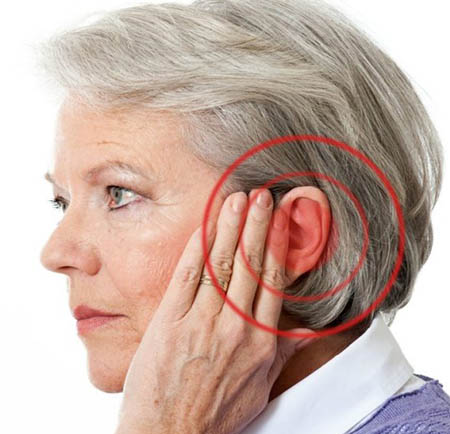
-
Vascular disorders: Conditions affecting blood flow, such as high blood pressure, atherosclerosis (narrowing of the arteries), or abnormal blood vessels near the ear, can contribute to pulsatile tinnitus.
-
Middle ear abnormalities: Certain abnormalities in the middle ear, such as abnormal muscle contractions or abnormalities in the small bones (ossicles) that transmit sound, can cause pulsatile tinnitus.
-
Head and neck tumors: Tumors in the head or neck region, including glomus tumors, can exert pressure on blood vessels or nerves, leading to pulsatile tinnitus.
It is important to consult with a healthcare professional to determine the underlying cause of pulsatile tinnitus and to develop an appropriate treatment plan.
Noise-Induced Tinnitus
Noise-induced tinnitus is a common form of tinnitus that occurs as a result of exposure to loud noises. This type of tinnitus can affect individuals who work in noisy environments, attend loud concerts, or engage in activities that involve the use of loud machinery or firearms.

Exposure to loud noises can damage the sensory cells in the inner ear, leading to tinnitus. The loud sounds cause the hair cells in the inner ear to become overstimulated and eventually damaged. Once these cells are damaged, they cannot effectively transmit sound signals to the brain, leading to the perception of tinnitus.
Prevention is key in noise-induced tinnitus. Wearing ear protection, such as earplugs or earmuffs, in noisy environments can significantly reduce the risk of developing tinnitus. It is important to be mindful of the volume levels of personal listening devices and to take breaks from loud noises to allow the ears to rest.
If noise-induced tinnitus occurs, it is important to seek medical evaluation to assess the extent of the damage and to explore treatment options. Management approaches may include sound therapy, counseling, and hearing aids to alleviate the symptoms and improve quality of life.
Understanding the specific causes and types of tinnitus can aid in its management and treatment, providing relief and improving overall well-being for individuals affected by the condition.
Tinnitus Diagnosis

Diagnosing this disease involves a comprehensive evaluation of an individual’s symptoms, medical history, and physical examination. Healthcare professionals, such as audiologists or ear, nose, and throat (ENT) specialists, are typically involved in the diagnosis and management of this condition.
During the diagnostic process, the healthcare provider will inquire about the nature and duration of the individual’s symptoms, any associated hearing loss, and the impact of this disease on their daily life. They may also ask about potential triggers or underlying medical conditions.
To further assess the individual’s hearing abilities, an audiogram may be conducted. This is a hearing test that measures the individual’s ability to hear different frequencies and intensities of sounds. The results can help determine the presence and extent of any hearing loss, as well as provide valuable information for managing this disease.
In some cases, additional diagnostic tests may be recommended to identify any underlying causes contributing to the development of this disease. These tests can include imaging studies (such as an MRI or CT scan) or blood tests to rule out specific medical conditions.
Audiogram

An audiogram is a key diagnostic tool used to assess an individual’s hearing abilities, including any associated hearing loss. It involves the use of headphones and a series of tones played at various frequencies and volumes.
During an audiogram, the individual will be asked to indicate when they can hear the tones by pressing a button or raising their hand. The results are plotted on a graph called an audiogram, which displays the individual’s hearing thresholds at different frequencies.
An audiogram can provide valuable information for diagnosing and managing this disease. It helps determine the severity and type of hearing loss, which can have an impact on the individual’s perception of the symptoms. Additionally, an audiogram can assist in determining the most appropriate treatment options, such as hearing aids or sound therapy.
Tinnitus Questionnaire
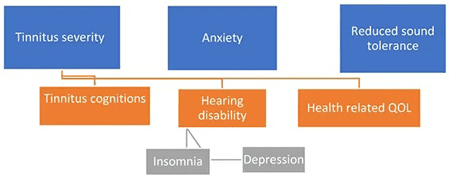
A questionnaire specific to this disease is a valuable tool used to gather detailed information about an individual’s symptoms, their impact on daily life, and potential associated factors. These questionnaires help healthcare professionals gain a comprehensive understanding of the individual’s experience with this disease and aid in developing a tailored treatment plan.
The questions in the questionnaire may cover various aspects, such as the perceived loudness and pitch of the symptoms, the frequency and duration of the symptoms, any triggers or exacerbating factors, and the impact on sleep, concentration, and emotional well-being. The questionnaire may also inquire about any medical conditions or medications that could be related to the development of this disease.
By completing the questionnaire, individuals can provide valuable information that assists healthcare professionals in making an accurate diagnosis and recommending appropriate treatment options. It helps in understanding the specific characteristics of the individual’s symptoms and tailoring interventions to address their unique needs.
The combination of a comprehensive medical history, physical examination, audiogram, and questionnaire allows healthcare professionals to diagnose and understand the individual’s experience with this disease. This information is crucial for developing an effective treatment plan and improving the individual’s quality of life.
Tinnitus Treatment Options
When it comes to managing this condition, there are several treatment options available that can help alleviate symptoms and improve quality of life. The choice of treatment depends on the severity of the condition and the individual’s specific needs and preferences. Here are some common treatment approaches for this condition:
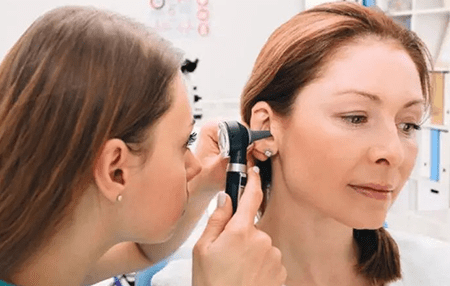
-
Sound Therapy: Sound therapy aims to reduce the perception of this condition by introducing external sounds that can mask or distract from the internal noise. This can be achieved through devices such as white noise machines, wearable sound generators, or smartphone applications that play soothing sounds or music.
-
Cognitive Behavioral Therapy (CBT): CBT is a type of therapy that focuses on changing negative thoughts and behaviors associated with this condition. It can help individuals develop coping strategies, reduce stress and anxiety, and improve their overall emotional well-being.
-
Tinnitus Retraining Therapy (TRT): TRT combines sound therapy with counseling to help individuals habituate to the perception of this condition. The goal is to reduce the negative emotional response to the sound, allowing it to become less intrusive over time.
-
Medications: In some cases, medications may be prescribed to manage specific symptoms associated with this condition. For example, antidepressants or anti-anxiety medications can help alleviate the emotional distress often experienced by individuals with this condition.
-
Alternative Therapies: Some individuals find relief from this condition through alternative therapies such as acupuncture, hypnosis, or relaxation techniques. While the effectiveness of these therapies may vary, they can be explored as complementary approaches to conventional treatments.
It’s important to consult with a healthcare professional experienced in treating this condition to determine the most suitable treatment plan based on individual circumstances. A personalized approach that combines multiple strategies may be necessary to effectively manage the symptoms and improve quality of life.
Cognitive Behavioral Therapy for Tinnitus

Cognitive Behavioral Therapy (CBT) has emerged as a promising treatment approach for individuals experiencing this condition. CBT aims to help individuals develop healthy coping mechanisms and change negative thought patterns and behaviors associated with the condition.
During CBT sessions, individuals work with a therapist to identify and challenge negative thoughts and beliefs about their condition. They learn techniques to manage stress, anxiety, and depression that can often accompany this condition. The therapist may also introduce relaxation techniques and mindfulness exercises to promote overall well-being.
CBT for this condition can provide individuals with practical tools to better cope with their symptoms and reduce their emotional distress. It focuses on improving their quality of life by shifting their attention away from the condition and helping them regain a sense of control over their thoughts and emotions.
Natural Remedies for Tinnitus
In addition to conventional treatments, some individuals explore natural remedies to alleviate the symptoms of this condition. While these remedies may not work for everyone, they are often considered safe and can be used as complementary approaches to conventional therapies. Here are some natural remedies that have been suggested for managing this condition:

-
Herbal Supplements: Certain herbs and supplements, such as ginkgo biloba, zinc, and magnesium, have been studied for their potential benefits in reducing the symptoms of this condition. However, it’s important to consult with a healthcare professional before starting any new supplements to ensure they are safe and appropriate for individual circumstances.
-
Relaxation Techniques: Stress and anxiety can exacerbate the symptoms of this condition. Engaging in relaxation techniques, such as deep breathing exercises, meditation, or yoga, can help reduce stress levels and promote a sense of calmness.
-
Healthy Lifestyle Habits: Adopting a healthy lifestyle can positively impact the symptoms of this condition. Regular exercise, a balanced diet, adequate sleep, and minimizing exposure to loud noises can contribute to overall well-being and potentially alleviate the severity of the condition.
-
Avoiding Triggers: Identifying and avoiding triggers that worsen the symptoms of this condition can be beneficial. Common triggers include caffeine, alcohol, nicotine, and certain medications. Keeping a journal to track symptom changes in relation to dietary choices and activities can help identify individual triggers.
While natural remedies may provide some relief for individuals with this condition, it’s important to approach them with caution and discuss them with a healthcare professional. They are not a substitute for professional medical advice, and a personalized treatment plan should be based on an individual’s specific needs and medical history.
Tinnitus and Hearing Aids
Hearing aids can be valuable tools in managing hearing loss and the associated symptoms of this condition. They are designed to amplify sounds and improve overall hearing, which can help minimize the impact of this auditory condition on an individual’s daily life. Here’s how hearing aids can assist individuals with this condition:
-
Sound Amplification: Hearing aids work by amplifying external sounds, making them louder and clearer. By enhancing the overall auditory experience, they can help individuals focus on external sounds rather than the internal noises associated with this auditory condition.
-
Masking Feature: Many modern hearing aids come with a masking feature that generates low-level background sounds to mask or cover up the perception of the internal noise. These masking sounds can be customized to suit an individual’s preferences and provide relief from the constant ringing or buzzing sensation associated with this auditory condition.
-
Improved Communication: This auditory condition can make it challenging to engage in conversations and understand speech clearly. Hearing aids can help by amplifying speech sounds, enhancing speech clarity, and improving overall communication abilities.
-
Tinnitus Management Programs: Some hearing aids offer specific programs or settings designed to manage the internal noise. These programs can deliver customized sound therapy to help individuals habituate to the internal noise and reduce its impact on their daily lives.
It’s important to consult with a hearing healthcare professional to determine the most suitable hearing aids for an individual’s specific needs. They can provide guidance on selecting the right device and assist with the fitting and customization process.
Best Hearing Aids for Tinnitus
When considering hearing aids for individuals with this auditory condition, there are several factors to consider to ensure the best possible outcomes. Here are some features to look for when choosing hearing aids specifically for managing this auditory condition:
-
Tinnitus Sound Therapy: Opt for hearing aids that offer built-in sound therapy programs for managing the internal noise. These programs provide customizable sound options, such as white noise or gentle nature sounds, to help mask the internal noise and promote habituation.
-
Adjustable Sound Settings: Look for hearing aids that allow for adjustable sound settings, including volume control and the ability to fine-tune the frequency response. This flexibility enables individuals to find the optimal sound balance that provides relief from the internal noise associated with this auditory condition.
-
Connectivity Options: Consider hearing aids with connectivity features, such as Bluetooth, that allow for seamless integration with other devices. This can enable individuals to stream soothing sounds or music directly to their hearing aids, enhancing their overall auditory condition management experience.
-
Comfort and Discretion: Choose hearing aids that are comfortable to wear for extended periods and suit an individual’s lifestyle and personal preferences. Some individuals may prefer discreet behind-the-ear models, while others may opt for smaller, in-the-ear styles.
It’s recommended to consult with a hearing healthcare professional who specializes in managing this auditory condition to determine the best hearing aids for an individual’s unique needs and preferences.
Hearing Aid Accessories for Tinnitus
In addition to hearing aids, there are various accessories available that can enhance the auditory condition management experience. These accessories can provide additional support and functionality to individuals experiencing this auditory condition. Here are some common hearing aid accessories for managing this condition:
-
Sound Generators: These small, portable devices are designed specifically for managing the internal noise associated with this auditory condition. They produce customized sounds that can help mask or distract from the internal noise. Some sound generators can be used in conjunction with hearing aids for enhanced relief.
-
Bluetooth Streamers: Bluetooth streamers allow individuals to connect their hearing aids to other audio devices wirelessly. This enables streaming of sound therapy programs, music, or other relaxing sounds directly to the hearing aids.
-
Remote Controls: Remote controls provide convenient access to adjust the settings of the hearing aids, including volume control and program selection. This allows individuals to easily customize their auditory experience and find the most effective settings for managing the auditory condition.
By combining the use of hearing aids and these accessories, individuals can optimize their management of this auditory condition and improve their overall quality of life.
Tinnitus Diet
A healthy and balanced diet can play a significant role in managing the symptoms of this auditory condition. While there is no specific diet that can cure or eliminate this condition, certain dietary choices may help reduce the severity of the symptoms and improve overall well-being. Here are some dietary recommendations for individuals experiencing this condition:
-
Reduce Salt Intake: Excessive salt consumption can lead to fluid retention and increased blood pressure, which may worsen the symptoms of this condition. It is advisable to limit the intake of processed foods, canned soups, and salty snacks, and opt for fresh, whole foods prepared with minimal salt.
-
Avoid Trigger Foods: Some individuals with this condition may find that certain foods or beverages can exacerbate their symptoms. These trigger foods can vary from person to person, but common culprits include caffeine, alcohol, nicotine, and high-fat foods. It is advisable to identify personal trigger foods and limit or avoid them to help manage the symptoms.
-
Increase Antioxidant-Rich Foods: Antioxidants can help protect the cells in the inner ear from damage and reduce inflammation, which may alleviate the symptoms of this condition. Incorporate a variety of fruits and vegetables into the diet, such as berries, leafy greens, citrus fruits, and bell peppers, as they are rich in antioxidants.
-
Omega-3 Fatty Acids: Foods rich in omega-3 fatty acids, such as fatty fish (salmon, mackerel, sardines), walnuts, flaxseeds, and chia seeds, have anti-inflammatory properties and may have a positive impact on this condition. Including these foods in the diet can be beneficial for overall ear health.
-
Stay Hydrated: Drinking an adequate amount of water throughout the day helps maintain proper blood circulation and overall health. Proper hydration can support the health of the auditory system and potentially reduce the severity of the symptoms.
Remember, dietary changes should be discussed with a healthcare professional or registered dietitian to ensure they align with individual health needs and any other existing medical conditions.
Stress and Tinnitus
Stress can have a significant impact on the symptoms of this condition. While it may not directly cause this condition, it can worsen the perception of the internal noise and make it more bothersome. Here’s how stress and this condition are interconnected:
-
Stress Hormones: When an individual experiences stress, the body releases stress hormones such as cortisol, which can affect various bodily systems, including the auditory system. Elevated stress hormone levels may heighten the perception of the internal noise and increase its intensity.
-
Muscle Tension: Stress can lead to increased muscle tension, including in the neck, jaw, and shoulders. This muscle tension can contribute to the exacerbation of this condition, as it can affect the blood flow and increase pressure on the auditory system.
-
Attention and Focus: Stress can make it difficult to concentrate and divert attention away from the internal noise. The heightened state of alertness and anxiety associated with stress can amplify the perception of this condition, making it more challenging to ignore or habituate to the internal noise.
-
Sleep Disturbances: Stress can disrupt sleep patterns, leading to inadequate rest and fatigue. Lack of quality sleep can further exacerbate this condition, as fatigue and tiredness can heighten sensitivity to the internal noise.
Managing stress is an essential component of managing this condition. Incorporating stress reduction techniques such as relaxation exercises, deep breathing, meditation, and engaging in activities that promote overall well-being can help alleviate the impact of stress on this condition.
Yoga for Tinnitus
Yoga, an ancient practice that combines physical postures, breathing exercises, and meditation, can be beneficial for individuals experiencing this condition. While yoga may not cure this condition, it can provide relaxation, stress reduction, and improved overall well-being, which can contribute to a better management of the symptoms. Here are some ways yoga can be helpful:
-
Stress Reduction: Yoga promotes relaxation and helps reduce stress levels. By practicing yoga regularly, individuals can experience a sense of calm and relaxation, which can alleviate the impact of stress on this condition.
-
Improved Blood Circulation: Certain yoga poses and movements can enhance blood circulation throughout the body, including the auditory system. Improved blood flow can support the health of the auditory system and potentially reduce the severity of the symptoms.
-
Mind-Body Connection: Yoga emphasizes the mind-body connection, bringing awareness to the present moment and fostering a sense of acceptance. This mindfulness can help individuals with this condition better cope with the internal noise and reduce their emotional reaction to it.
-
Relaxation Techniques: Yoga incorporates various relaxation techniques, such as deep breathing exercises and meditation, which can promote relaxation and reduce the perception of the internal noise.
It is important to note that yoga should be practiced under the guidance of a qualified instructor, especially for individuals with specific health concerns or limitations. Consulting with a healthcare professional is recommended before starting any new exercise or yoga routine.
Tinnitus Support Groups
Support groups dedicated to this condition are valuable resources for individuals dealing with it. These groups provide a supportive environment where individuals can connect with others who understand their experiences and challenges. Here are some key benefits of joining a support group:
-
Emotional Support: Support groups offer a safe space to share personal experiences, emotions, and concerns related to this auditory condition. Being in the company of others who are going through similar struggles can provide a sense of validation, comfort, and emotional support.
-
Information and Education: Support groups often provide access to valuable information and educational resources about this condition. Members can learn about the latest research, treatment options, coping strategies, and lifestyle modifications that can help manage the symptoms more effectively.
-
Coping Strategies: Members of support groups often share their personal coping strategies for managing the symptoms associated with this condition. These strategies can include relaxation techniques, sound therapy, mindfulness practices, and lifestyle adjustments. Learning from others’ experiences can inspire new ideas and approaches to managing the symptoms.
-
Sense of Community: Support groups foster a sense of community and belonging. Members can form meaningful connections, build friendships, and develop a support network that extends beyond the group meetings. Having a community of individuals who understand and empathize with the challenges of this condition can provide a sense of camaraderie and reduce feelings of isolation.
Online Communities
In addition to in-person support groups, online communities have become increasingly popular for individuals seeking support and information about this condition. These communities provide a virtual space where individuals can connect with others, share their stories, seek advice, and find support. Here are some advantages of online communities:
-
Accessibility: Online communities offer accessibility and convenience. Individuals can participate from the comfort of their own homes and connect with others regardless of geographical location. This is especially beneficial for those who may not have access to local support groups or prefer the anonymity of online interactions.
-
24/7 Support: Online communities operate around the clock, allowing individuals to seek support and information whenever they need it. Members can engage in discussions, ask questions, and receive responses from others who may have faced similar challenges. The continuous availability of support can be especially helpful during times of heightened distress or anxiety.
-
Diverse Perspectives: Online communities attract individuals from various backgrounds, experiences, and viewpoints. This diversity enriches the discussions and allows members to gain insights from different perspectives. It broadens the range of coping strategies, treatment options, and resources that individuals can explore.
-
Anonymity and Privacy: Online communities offer a level of anonymity and privacy, allowing individuals to share their experiences without revealing their identities if they choose. This anonymity can create a safe space for open and honest discussions, fostering trust and encouraging individuals to express themselves more freely.
Local Meetups
Local meetups provide an opportunity for individuals in the same geographical area to gather, connect, and support each other. These meetups can take various forms, such as informal coffee gatherings, support group meetings, or structured educational events. Here are some benefits of participating in local meetups:
-
Face-to-Face Interaction: Local meetups allow individuals to meet others in person, which can foster deeper connections and a sense of community. Being able to see and interact with others who share similar experiences can enhance understanding and empathy.
-
Shared Local Resources: Local meetups provide an opportunity to share knowledge about local resources, such as healthcare professionals specializing in this condition, clinics offering specialized treatments, or local events focused on raising awareness. Participants can exchange valuable information specific to their region, enhancing their access to relevant resources.
-
Guest Speakers and Workshops: Local meetups may invite guest speakers, such as audiologists, therapists, or experts in tinnitus management, to share their knowledge and insights. Workshops on coping strategies, relaxation techniques, or new treatment modalities can also be organized, offering participants practical tools and skills to manage their symptoms.
-
Sense of Belonging: Local meetups create a sense of belonging within the community. Meeting others in person, sharing stories, and experiencing mutual support can strengthen the bond between participants. It can provide reassurance and a reminder that individuals are not alone in their journey with this condition.
Whether choosing a support group, joining an online community, or participating in local meetups, individuals can find solace, understanding, and valuable resources to help navigate their journey with this condition.
Related Links
Conclusion
In conclusion, this disease can significantly impact the quality of life for those who experience its symptoms. It is a complex condition that manifests as a perception of sound in the absence of external stimuli. The symptoms of this disease vary from person to person and can range from mild to severe, including ringing in the ears, ear fullness, ear pain, and dizziness.
While the exact causes of this disease are not fully understood, several factors have been identified as potential contributors, such as exposure to loud noise, age-related hearing loss, certain medical conditions, and even stress. It is crucial to seek professional medical evaluation and diagnosis to determine the underlying causes and develop an appropriate treatment plan.
Speaking of treatment options, there are various approaches available to manage the symptoms of this disease. These include medical interventions, such as medication and surgical procedures, as well as non-medical approaches like cognitive-behavioral therapy, sound therapy, lifestyle modifications, and relaxation techniques. It is essential to work closely with healthcare professionals to explore the most suitable treatment options based on individual needs and preferences.
Moreover, support groups, online communities, and local meetups can offer invaluable support, information, and a sense of belonging for individuals dealing with this disease. Connecting with others who understand the challenges and experiences associated with this condition can provide emotional support and a platform to share coping strategies and insights.
While there is no known cure for this disease, many individuals find significant relief and improved quality of life through a combination of appropriate management strategies and lifestyle adjustments. It is important to remember that each person’s journey with this condition is unique, and finding the right approach may require patience and perseverance.
In conclusion, with the right support, understanding, and management strategies, individuals living with this disease can navigate their experiences more effectively and improve their overall well-being.
Q : 1. Can stress worsen the symptoms of this disease?
A : Yes, stress can exacerbate the symptoms of this disease. Increased stress levels can heighten the perception of sound and make the symptoms more noticeable and bothersome.
Q : 2. Are there any natural remedies for managing the symptoms of this disease?
A : Some individuals find relief from the symptoms of this disease by incorporating natural remedies into their management strategies. These can include practices like yoga, meditation, acupuncture, and herbal supplements. However, it is important to consult with healthcare professionals before trying any natural remedies to ensure safety and effectiveness.
Q : 3. Are hearing aids effective in managing the symptoms of this disease?
A : Hearing aids can be beneficial for individuals with this disease, especially if they have co-existing hearing loss. These devices help amplify external sounds, reducing the perception of the internal sound associated with this disease and improving overall hearing.
Q : 4. Is there ongoing research to find a cure for this disease?
A : Yes, there is ongoing research focused on understanding the mechanisms and causes of this disease, as well as developing potential treatments and interventions. While a definitive cure has not been discovered yet, advancements in research continue to shed light on this condition and improve management strategies.
Q : 5. Can lifestyle modifications help alleviate the symptoms of this disease?
A : Yes, certain lifestyle modifications can help alleviate the symptoms of this disease. These can include reducing exposure to loud noises, managing stress levels, getting regular exercise, maintaining a healthy diet, and practicing good sleep hygiene.
Q : 6. Is it common for this disease to resolve on its own?
A : While some individuals may experience temporary episodes of this disease that resolve on their own, for many, it becomes a chronic condition. Seeking medical evaluation and appropriate management strategies can help individuals better cope with the symptoms and improve their quality of life.
More Links
Tinnitus |
Tinnitus Symptoms |
Ringing in the ears |
Tinnitus Diagnosis |


